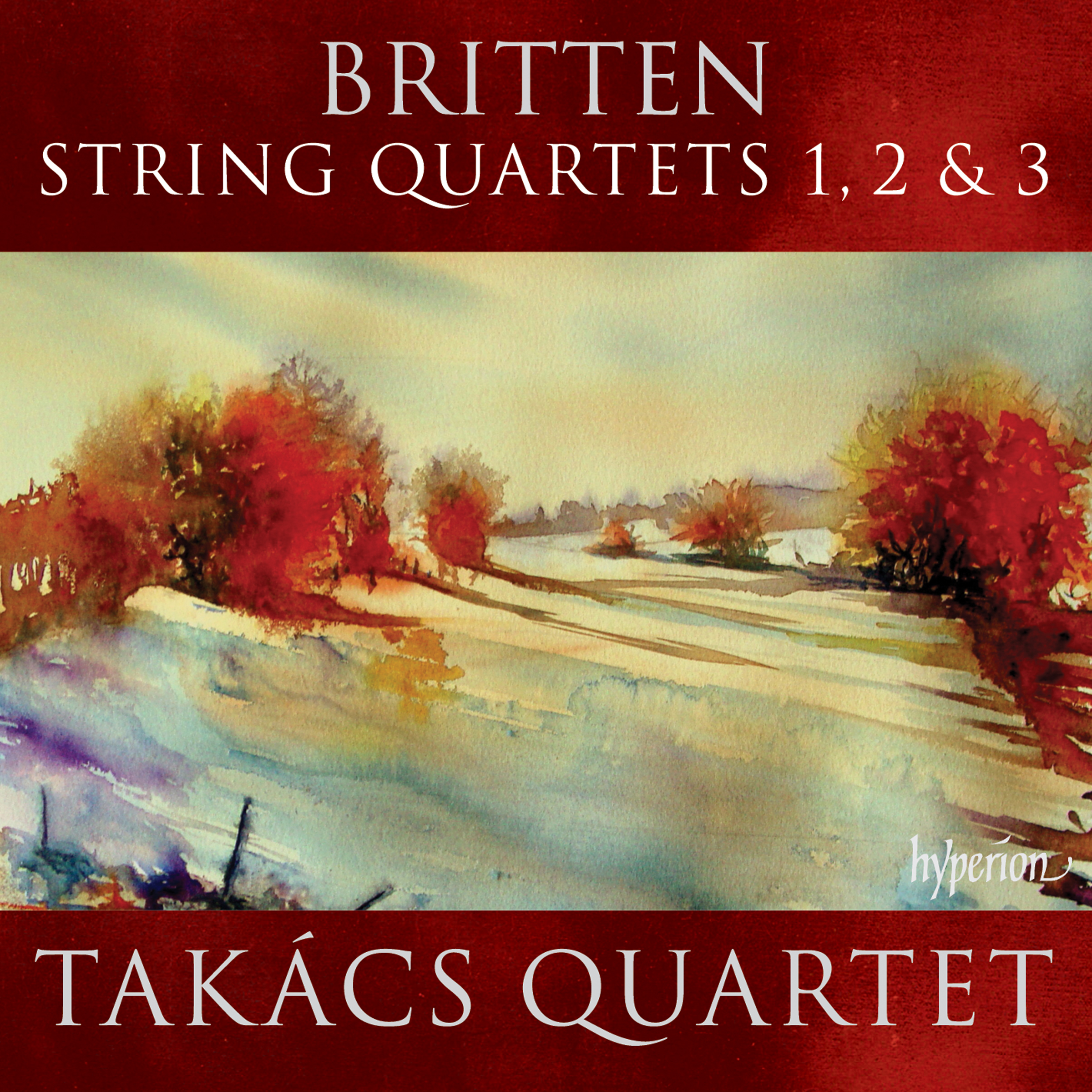Taking a Genre Into Your Own Hands
That is what Britten does with the string quartet.
I particularly enjoy Britten's first two string quartets, while I am still attempting to come to terms with his Third.
I do love the opening high-ranged strings over plucked cello in String Quartet no. 1 in D Major; it is such a remarkable opening, and the composer brings it back to cohere the movement. Britten contrasts this opening portion with grouchy rhythmic motion following the aforementioned introduction.
Instead of going through descriptions of each movement, let me say what I think makes me gravitate towards these two early quartets especially - they are strong of character, despite occasionally 'tougher' musical language. Modern yes; unattainable, certainly not! These may be among the most important contributions to the genre from 20th-Century Britain, but as mere listening, they remain a pleasure despite any challenges the music may throw at us.
String Quartet no. 2 in C Major follows much in the same manner of its predecessor, and to my pleasure at that. Britten lays much of the focus of the quartet fully on the final Chaconne, an anniversary nod to the British Baroque composer Henry Purcell. I am not sure I can hear this influence, other than appreciating the antique musical form, yet I know Britten had a love of the musical past, so this aspect is not completely unfamiliar, nor unexpected from the composer.
When the glissandos enter halfway through the first movement, I know the composer is going for something much more experimental sounding, and indeed, each subsequent movement bears unusual string techniques. In the second movement, Britten paces the strings in such a way as to make the musical lines sound heterophonic, a technique I remember him using in Curlew River after he discovered Noh theatre in Japan. The composer places three solo cadenzas in the third movement, one for cello, viola, and violin respectively, before the quartet comes to a conclusion.
Britten changes gears for his final string quartet, eschewing any key in the title, and giving each movement, of which there are five, a musical stylistic title alongside English-language tempo markings instead of the previous Italian instructions. Perhaps this is due to the composer's ill health and the need for assistants when composing?
Can I say String Quartet no. 3 is a tough nut for this listener? The dissonance is thicker and applied more liberally, making for rather thorny listening. The textures sound spare while the rhythmic profile can be dauntingly complex. Its music remains a puzzle for me, although at least the movement titles give some guidance as to what to listen for in this music.
Again, it is the older music forms which are placed last, and the final movement runs the longest - a passacaglia, which is preceded by a witty Burlesque. Overall, I sense this is very personal music, and maybe being composed so close to the composer's death, there are elements awaiting me to finally 'get' later in life. Time will tell...
I am not terribly familiar with many recordings regarding this trio of string quartets, but the Takács sound confident throughout, with a great unanimity of ensemble. Certainly the Hyperion sound is terrific to match the playing of the performers.
Works
String Quartet 1 in D Major, op. 25 (24.11)
String Quartet 2 in C Major, op. 36 (26.53)
String Quartet 3, op. 94 (24.49)
Performers
Takács Quartet
Edward Dusinberre, violin
Károly Schranz, violin
Geraldine Walther, viola
András Fejér, cello
Label: Hyperion
Year: 2013
Total Timing: 75.55
Britten's string quartets are not everyday listening for these ears. The works require patience and attention, with much to gain from spending time with them.
I have not broken through String Quartet no. 3 as of yet, but I hold out for enjoying it more in the future. Clearly, its music is both important and personal.
The Takács tackle the music excellently here, and no one would need to convince me if these were considered reference quality performances.


Comments
Post a Comment